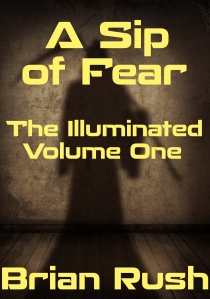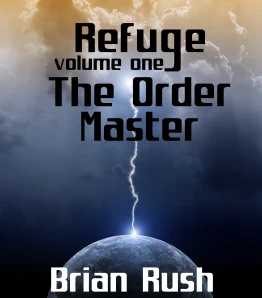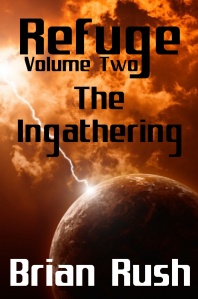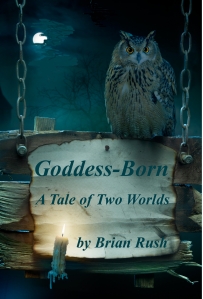
I find myself feeling like another post should be added today, but not in a position to write anything pithy and insightful about the subjects appropriate to this blog. It happens sometimes. So . . . I shall engage in a cop-out (y’all forgive me, please) and post something I’ve already written, namely the first chapter from The Green Stone Tower (A Tale of Two Worlds). When faced with future intellectual doldrums of a similar nature I may present further excerpts and it’s even possible I will eventually serialize the whole thing that way.
Here the character of Johnny Silverbell or Johnny the Singer is introduced, we learn a little about the Kingdom of Grandlock where he lives and the mystery of the Green Stone Tower which confronts him. He has a brush with castration which shows something of his character, and the stage is set for further development of the plot. Hope you enjoy it!
***
It was an April Sunday, and there were no classes that day or any homework to do. The breezes by the river, thankfully upstream from where the sewers of Watercourse dumped their syrupy slime into the waters, smelled of apple blossoms and wildspice. It was a perfect day for music, for poetry, for good ale, and for love. Johnny Silverbell had the music in hand as he strummed his father’s eight-string ambertone. The poetry lived in his soul and emerged as sweet as kisses in his songs. He kept the good ale at his side and would sample more of it at the song’s ending. Love waited for him in the Garden Court in the person of delicious Annie Fircone. Life was good, he was young, and the sunshine warmed his spirit as the breeze played with his hair, reminding him of Annie’s dainty fingers.
Young Johnny sang by the Tower so high
Of juicy sweet fruits and oyster pie
With a wind in the trees and stars in his eyes
And a faerie to listen and sweetly to sigh
But of course he couldn’t sing that one, not here, not out in the open where anyone could hear him. The naughty implications of juicy fruits and oyster pie weren’t the problem. That would only send boys into grins and girls into simpers, with the bolder girls ready to offer him a sample of their juicy fruits and their oyster pie in thanks for his music. But whatever imp moved him to add that line about the faerie was not strong enough to overcome his self-preservation and good sense. Not that singing about the faerie-folk was any crime, but best not draw the attention of those willing to look for what might hide beneath the song’s surface.
So he sang instead a song of love under moonlight on the Maiden’s Night around the Springtide fires. That was bad enough with the priests so sour-faced and always suspicious of the old ways, but at least in that song there was no magic to be found except the magic of love.
“Lie upon me ‘neath the Maiden’s moon a-glowing,”
She told her lover, “Let me be your field,
“And be not slow, sweet plowman, with your sowing,
“And I to you my love completely yield.”
Johnny finished the song and drew a long drink of his ale and of the applause, both at once. Then he smiled back at the smiles about him. It was an April Sunday with apple-blossom breezes and happy smiles, with music and poetry and good ale ready to hand and love waiting for him when the sun went down. And if the magic sang secret in his blood as well, if the memory still dazzled him of the faerie he had really seen in the long grass near the Green Stone Tower, nobody listening needed to know that. She had listened to his music and sweetly sighed, and said he had a voice that could sing the trolls into kindness and the dark god into daylight. But he knew she was only flattering him, sweet deceiver that she was.
He sang more songs and he drank more ale. He ate spring fruits and berries and fish pie and green salad and fresh bread, and then he sang some more and drank more ale. His voice never failed him, though his legs grew a bit unsteady, as the people came and went. Some tossed coins into his open ambertone case or on the cobblestones nearby. Some blew kisses and some threw flowers, and all gave him smiles and the clap of their hands. At last when the sun was on the horizon he bowed his thanks, gathered up the earnings that he didn’t need except as a measure of his singing, put away his instrument and walked away from the square to meet sweet Annie at the Garden Court by the girls’ college.
The sun sank into the west, past the Sunset Gate of the Watercourse Wall. Against the red visage of the setting sun as it slipped towards its sleep (shush, boring philosophers who spoiled the romance by pointing out the world was round) rose the mighty unanswerable spire of the Green Stone Tower. Let the priests cry heresy on magic or the philosophers say there was no truth to it. Both must fall mute before the Green Towers of the Old Gods, towers that were never made by the hands of man. They paid no heed to the accusations of the Church, and smiled in amusement at the philosophers’ presumption. But on this day at this sunset Johnny set his feet to the east. The sun was at his back and so was the Tower, and although he felt it always as the compass knows the north, he paid it only a passing thought. He smiled as he went to meet the lesser but far sweeter mystery of his red-haired love.
East down the narrow cobbled streets he strolled with a spring in his step, town houses looming on each side, ambertone on his back and a song still in his heart. The gas lamps began to shine and drive away the gathering dark of night with their noisy brightness. Soon Johnny walked through empty twilit streets. The good folk of Watercourse went indoors to do their evening chores and devotions, or to enjoy the entertainments provided by the city’s theaters, restaurants, taverns, and such. Thus it was that when he saw a number of young men sharing the street with him and keeping pace with him he became wary. He knew that these were unlikely to be among the city’s good folk, but were instead among its bad. Two of them moved in front to cut him off and two more closed in behind. Looking about to left and right he saw that he was unlikely to make his way free from their attentions without a fight.
“Good evening to you, gentlemen,” he said. “What do you wish of me this fine evening of an April day?”
“Why, listen to this fellow talk,” said one young man behind Johnny and to his right. “Don’t he talk pretty?”
“That he does,” said another, a wiry, thin man in front of Johnny and on his left. “They school ‘em to talk sweet at the university.” He invested the last word with such scorn that Johnny wondered how he could hold it all in his mouth. Indeed it seemed he could not, for the thin man spat upon the ground near Johnny’s shoes. The fellow before Johnny and on his right was taller and looked stronger but much dimmer. He laughed a gravel-deep laugh, full of malice and as stupid as a stump.
“Never catch me at the university,” said the fourth young man, behind Johnny and to his left.
“Never be let in, that’s why,” said the thin one. “Unless your dad’s a lord, or at least rich like a lord.”
“Well,” said the fourth young man reasonably, “my dad might be a lord. My ma never tol’ me who he is.”
“That’s ‘cause she don’t know herself,” said the other man in back of Johnny.
“Does so,” said the fourth man sullenly, but the other three laughed.
“The university ain’t for our sort,” said the thin man who seemed to be the leader. “A lord’s boy, he’s better’n scum like us. Ain’t that right, lord’s boy? Ain’t you better’n scum like us, with your fancy music box on your back and your pretty way of talkin’?” He took his hand from his pocket then and in it he held a short knife. “But there’s one way scum like us’ll be better’n you after tonight, lord’s boy.” He nodded to the two in back, who seized Johnny by the arms and held him tight. “No, there’s two ways,” said the man with the knife. “We’ll still have a cock and we’ll still have balls.” He grinned wickedly as he reached with his empty hand for the fastening to Johnny’s trousers.
There was but one thing to do. Johnny feared to do it but not as much as he feared that knife. He called to the magic that sang in his blood, the gift from the faerie who had smiled at his music. He invoked the teaching of old Stephen Seedcorn who lived in the cabin in the Blackwater Woods to the west near the Tower. And he prayed to the Old Gods that no one was watching, knowing as he did that the Good God of the Church would not be listening or wouldn’t answer the prayer if He was. The two men before him and the two behind seemed to freeze like statues as Johnny pulled his feet up. Holding onto the two behind, he kicked hard into the face of the man with the knife, that never saw the kick coming or moved an inch to dodge.
Back and down went the man with the knife and struck his head hard on the cobbles, while Johnny pulled one way and then the reverse. He tossed the men holding him into each other so that both of them stumbled and went down. Then he ran up the street throwing shadows in the gaslight. His attackers soon recovered from the spell, though the one with the knife didn’t quickly get up. He lay on the ground clutching his head and moaning. But the other three saw Johnny sprinting down the street and took off after him at a run. Around a corner Johnny ran, straight into the night patrol, two men in red uniforms with pistols and short swords and clubs at their sides. Literally into them: he bounced from their bodies to stand breathless in the street. Before they could complain or ask him what he was about, the three young men pursued him round the corner and drew up short.
“Here, what’s all this?” said one of the constables.
“He –” began one the hoodlums.
“That feller there –” spoke up another.
“He’s a damned witch,” said the third.
“They were going to castrate me,” said Johnny.
The constables looked Johnny over appraisingly and then gave a similar treatment to his pursuers, with their ragged mismatched clothes, ground-in filth, and uncouth smell.
“He’s a witch, I’m tellin’ your Lordship,” said one of the men, the one whose mother had been accused of not being able to identify his father. “He cast a spell on us, and our mate’s lyin’ on the pavin’ stones dyin’.”
The constables looked at Johnny once more. “They were going to castrate me,” he repeated. “The fourth one had a knife. I kicked him and he went down and hit his head on the cobblestones and I ran.”
“A spell, your Lordship,” whined the hoodlum of unknown parentage.
The constables nodded to Johnny, then frowned at the three young men and drew their clubs. “A likely story,” said one.
“Come along with us now,” said the other, “and you can tell it to the captain. He’ll decide if you can tell it to the judge.”
“But first lead us to where your friend hurt his head,” said the first constable. “You, young man,” he said to Johnny, “be on your way now. We’ll deal with this scum.”
Johnny nodded, and walked on down the street as the constables waded into his erstwhile attackers with their clubs, none too gently. The young men howled and protested but to no avail. Johnny paused a moment to thank the Old Gods for answering his prayer. If the constables had seen him do his magic it might be him arrested and not those four walking piles of dirt.
Somewhat shaken, but with his smile coming back to his face, and with a story to tell that needed but a little editing and embellishment to make it fit for tender ears, he finally reached the Garden Court of the Watercourse College for Young Ladies. There, beneath the spreading leaves of the biggest oak in the city, sat the lovely red-haired green-eyed girl who held Johnny Silverbell’s heart in her slender hands.
In the side of that oak nestled a hidden door, well known to many of the young ladies of the college. If truth be told, it was known to the instructors and mistresses as well. Their stern faces might be caught breaking into the ghosts of girlish-impish smiles, when they looked out the upper-storey windows of the college. There the huge oak shaded more than half the Garden Court. The hidden door opened on a small hidden room dug into the flesh of the oak itself and into the earth beneath its roots. The room was stone walled and strewn with a bed of rushes and flowers. On this soft bed Annie Fircone lay down naked in Johnny’s arms and took her pleasure of his love. Afterwards she heard the story of his escape from the four men who would have sliced off his manhood. Then she took him again in reward for his courage and in relief that he still had that part of him she loved best.
Three nights later, Rufus Littlenut’s head was quite recovered from its pounding on the paving stones. He and his three companions in villainy were released from the city gaol, there being no evidence against them of serious crime beyond a general air of larceny and mayhem. Rufus vowed to himself that he would find that witch boy who had knocked his noggin on the hard street. When he found him, he would not be so foolish as to challenge him directly a second time. No, Rufus was wiser than his fellows and knew himself no match for a sorcerer, but the right threat might cause the lord’s boy to display his magic in a way that would come to the law’s attention. Rufus was going to be an instrument of the King’s justice. He was a bright enough man that the irony appealed to him, and he laughed when he thought of it.
It was the work of but a few more nights afterwards to discover that the sorcerer was sweet on a pretty red-haired student at the girls’ college.
***
You can find more of The Green Stone Tower (up to and including the whole book) at
Amazon
Smashwords and
Barnes & Noble














